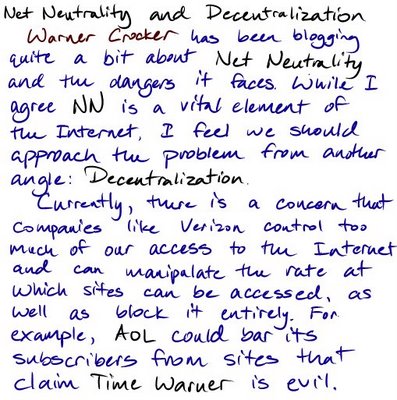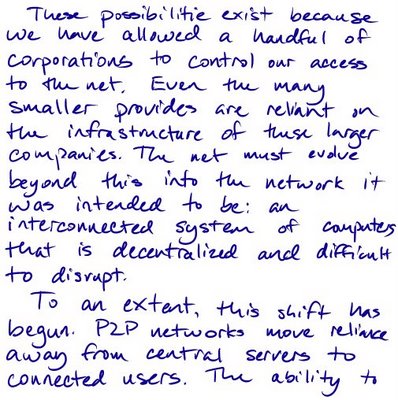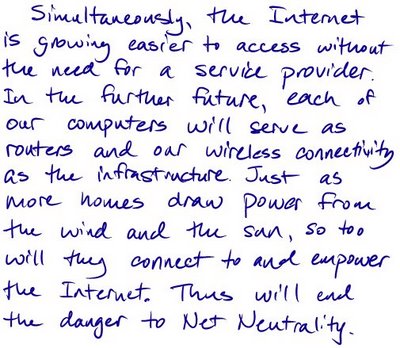


 Warner Crocker has been blogging quite a bit about Net Neutrality and the dangers it faces. While I agree NN is a vital element of the Internet, I feel we should approach the problem from another angle: Decentralization.
Warner Crocker has been blogging quite a bit about Net Neutrality and the dangers it faces. While I agree NN is a vital element of the Internet, I feel we should approach the problem from another angle: Decentralization.Currently, there is a concern that companies like Verizon control too much of our access to the Internet and can manipulate the rate at which sites can be accessed, as well as block it entirely. For example, AOL could bar its subscribers from sites that claim Time Warner is evil.
These possibilities exist because we have allowed a handful of corporations to control our access to the net. Even the many smaller providers are reliant on the infrastructure of these larger companies. The net must evolve beyond this into the network it was intended to be: an interconnected system of computers that is decentralized and difficult to disrupt.
To an extent, this shift has begun. P2P networks move reliance away from central servers to connected users. The ability to connect to multiple networks is being hatched. Coupled with the growth of municipal wifi, we will be able to access the Internet through multiple channels simultaneously. If one channel is blocked, another will be followed. Ultimately, there will be no way for any one company to disrupt the flow of information. The idea of Net Neutrality will become obsolete. Providers will need to supply unobstructed access or else see their customers diverted elsewhere.
Simultaneously, the Internet is growing easier to access without the need for a service provider. In the further future, each of our computers will serve as routers and our wireless connectivity as the infrastructure. Just as more homes draw power from the wind and the sun, so too will they connect to and empower the Internet. Thus will end the danger to Net Neutrality.

0 Comments:
Post a Comment
<< Home